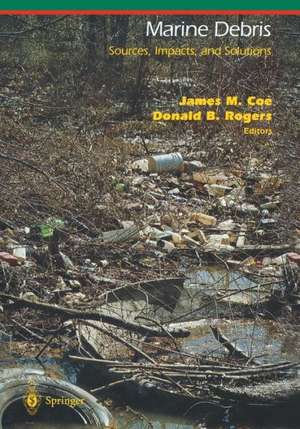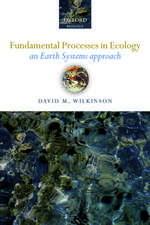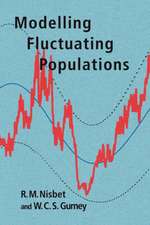Marine Debris: Sources, Impacts, and Solutions: Springer Series on Environmental Management
Editat de James M. Coe, Donald Rogersen Limba Engleză Paperback – 15 noi 2011
Din seria Springer Series on Environmental Management
- 18%
 Preț: 1230.84 lei
Preț: 1230.84 lei - 15%
 Preț: 642.18 lei
Preț: 642.18 lei - 18%
 Preț: 1236.51 lei
Preț: 1236.51 lei - 18%
 Preț: 953.82 lei
Preț: 953.82 lei - 18%
 Preț: 779.08 lei
Preț: 779.08 lei - 15%
 Preț: 642.83 lei
Preț: 642.83 lei - 15%
 Preț: 677.85 lei
Preț: 677.85 lei - 15%
 Preț: 640.06 lei
Preț: 640.06 lei - 15%
 Preț: 640.06 lei
Preț: 640.06 lei - 15%
 Preț: 635.47 lei
Preț: 635.47 lei - 15%
 Preț: 505.49 lei
Preț: 505.49 lei - 18%
 Preț: 1236.69 lei
Preț: 1236.69 lei - 18%
 Preț: 962.98 lei
Preț: 962.98 lei - 15%
 Preț: 640.06 lei
Preț: 640.06 lei - 15%
 Preț: 638.24 lei
Preț: 638.24 lei - 15%
 Preț: 634.68 lei
Preț: 634.68 lei - 18%
 Preț: 959.82 lei
Preț: 959.82 lei - 15%
 Preț: 641.03 lei
Preț: 641.03 lei - 15%
 Preț: 653.46 lei
Preț: 653.46 lei -
 Preț: 399.50 lei
Preț: 399.50 lei -
 Preț: 387.38 lei
Preț: 387.38 lei - 18%
 Preț: 950.66 lei
Preț: 950.66 lei - 15%
 Preț: 651.99 lei
Preț: 651.99 lei - 18%
 Preț: 957.62 lei
Preț: 957.62 lei - 15%
 Preț: 647.40 lei
Preț: 647.40 lei - 18%
 Preț: 945.79 lei
Preț: 945.79 lei - 18%
 Preț: 1218.69 lei
Preț: 1218.69 lei - 15%
 Preț: 634.68 lei
Preț: 634.68 lei - 18%
 Preț: 1225.79 lei
Preț: 1225.79 lei - 15%
 Preț: 657.25 lei
Preț: 657.25 lei -
 Preț: 397.38 lei
Preț: 397.38 lei - 15%
 Preț: 641.03 lei
Preț: 641.03 lei - 15%
 Preț: 650.86 lei
Preț: 650.86 lei - 15%
 Preț: 711.21 lei
Preț: 711.21 lei - 15%
 Preț: 643.16 lei
Preț: 643.16 lei - 18%
 Preț: 724.80 lei
Preț: 724.80 lei - 15%
 Preț: 635.47 lei
Preț: 635.47 lei
Preț: 404.89 lei
Nou
Puncte Express: 607
Preț estimativ în valută:
77.47€ • 81.11$ • 64.11£
77.47€ • 81.11$ • 64.11£
Carte tipărită la comandă
Livrare economică 05-19 aprilie
Preluare comenzi: 021 569.72.76
Specificații
ISBN-13: 9781461384885
ISBN-10: 1461384885
Pagini: 472
Ilustrații: XXXV, 432 p. 4 illus. in color.
Dimensiuni: 178 x 254 x 25 mm
Greutate: 0.81 kg
Ediția:Softcover reprint of the original 1st ed. 1997
Editura: Springer
Colecția Springer
Seria Springer Series on Environmental Management
Locul publicării:New York, NY, United States
ISBN-10: 1461384885
Pagini: 472
Ilustrații: XXXV, 432 p. 4 illus. in color.
Dimensiuni: 178 x 254 x 25 mm
Greutate: 0.81 kg
Ediția:Softcover reprint of the original 1st ed. 1997
Editura: Springer
Colecția Springer
Seria Springer Series on Environmental Management
Locul publicării:New York, NY, United States
Public țintă
Professional/practitionerCuprins
I The Status of Marine Debris.- Section I. Amounts, Types, and Distribution.- 1. Debris in the Mediterranean Sea: Types, Quantities, and Behavior.- 2. Distribution of Floating Debris in the North Pacific Ocean: Sighting Surveys 1986–1991.- 3. Marine Debris in the Caribbean Region.- 4. Distribution, Type, Accumulation, and Source of Marine Debris in the United States, 1989–1993.- 5. Pelagic Plastics and Other Seaborne Persistent Synthetic Debris: A Review of Southern Hemisphere Perspectives.- SECTION II. Biological Impacts.- 6. The Highest Global Concentrations and Increased Abundance of Oceanic Plastic Debris in the North Pacific: Evidence from Seabirds.- 7. Encrusters, Epibionts, and Other Biota Associated with Pelagic Plastics: A Review of Biogeographical, Environmental, and Conservation Issues.- 8. Impacts of Marine Debris: Entanglement of Marine Life in Marine Debris Including a Comprehensive List of Species with Entanglement and Ingestion Records.- 9. Ghost-Fishing Gear: Have Fishing Practices During the Past Few Years Reduced the Impact?.- II The Sources and Solutions to the Marine Debris Dilemma.- SECTION III. The Socioeconomics of Marine Debris.- 10. A Socioeconomic Theory for Controlling Marine Debris: Is Moral Suasion a Reliable Policy Tool?.- 11. Marine Debris: Benefits, Costs, and Choices.- 12. The Economic Value of Controlling Marine Debris.- 13. A Comprehensive Waste Management Model for Marine Debris.- SECTION IV. Considering the Maritime Sources of Debris.- 14. Shipping and Marine Debris in the Wider Caribbean: Answering a Difficult Challenge.- 15. The Challenges of Ship-Generated Garbage in the Caribbean.- 16. MARPOL Annex V, Commercial Ships, and Port Reception Facilities: Making It Work.- 17. Comparison of MARPOL Annex V Port Reception Facilitiesfor Garbage in the U.S. Gulf of Mexico and the United Kingdom.- 18. Waste Disposal Practices of Fishing Vessels: Canada’s East Coast, 1990–1991.- 19. Dealing with Ship-Generated Plastics Waste on U.S. Navy Surface Ships.- 20. Recreational Boaters and Marine Debris: How We Can Effectively Reduce Littering.- 21. A Strategy to Reduce, Control, and Minimize Vessel-Source Marine Debris.- SECTION V. Considering the Land-Based Sources of Debris.- 22. Legal Regulation of Upland Discharges of Marine Debris: From Local to Global Controls and Back.- 23. Comparison of the Results of Two EPA Marine Debris Studies.- 24. New York and New Jersey Beaches: “It Was a Very Good Year”.- 25. Sources of Plastic Pellets in the Aquatic Environment.- 26. Implementation and Assessment of a Floatables Action Plan for the New York-New Jersey Harbor Complex.- 27. The Control of Floating Debris in an Urban River.- 28. Linkages Between Land-Based Sources of Pollution and Marine Debris.- 29. Upland Sources of Marine Debris on the Shorelines of Puerto Rico.- 30. Land-Based Sources of Marine Debris and Contamination of the Coastal Areas of the Caribbean Islands of St. Lucia, Dominica, and the British Virgin Islands.- 31. Strategies to Reduce, Control, and Minimize Land-Source Marine Debris.- Literature Cited.
Recenzii
"..the authors have done a very valuable job in bringing together such a large collection of information. Anyone with an interest in the topic will want to have access to the book." Jnl of Experimental Marine Biology and Ecology















